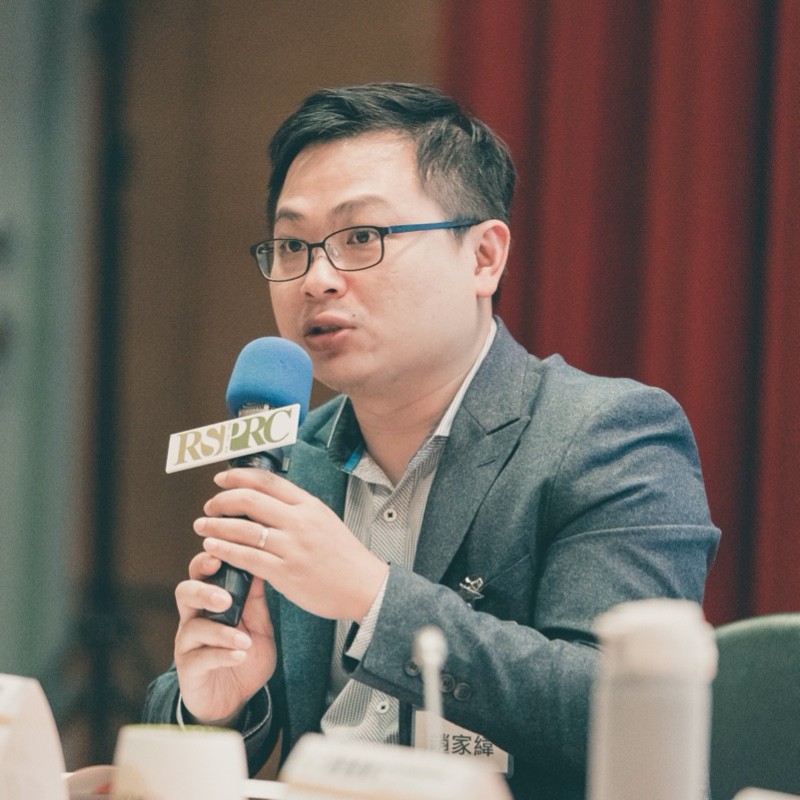On May 17th, Taiwan is set to shut down the last operating reactor at the Maanshan Nuclear Power Plant (NPP 3), effectively realizing its long-held goal of becoming a “nuclear-free homeland.” This milestone marks the culmination of a policy first initiated after the Democratic Progressive Party (DPP)—an anti-nuclear political force—won the presidential election in 2016 and launched an ambitious energy transition plan. The policy aimed to phase out all nuclear power plants by 2025, replacing them with renewable energy sources, while gradually reducing coal-fired power in favor of natural gas.
From its inception, the energy transition has been politically contentious. Pro-nuclear parties and advocacy groups initiated two national referendums in 2018 and 2021. The 2018 vote succeeded in repealing a symbolic clause in the Electricity Act referencing a “nuclear-free homeland,” but this had no substantive effect on policy. The 2021 referendum, which sought to revive the mothballed Lungmen Nuclear Power Plant (NPP 4), was narrowly defeated, with 53% voting against it, the result effectively closed the door on restarting NPP 4.
Amid the political controversy. the nuclear phase-out driven energy transition policy already reshapes the landscape of power system. The share of nuclear power reduces to 4% in 2024, the share of renewable energy increase to 12%. In the other aspect, coal fired power plant no longer dominates the power generation, it was overtaken by LNG generation in 2024. Taiwan rank No 17 in term of total solar capacity and No. 5 in offshore wind capacity, and more than 32 thousand green jobs are created, those achievements are the legacy of Taiwan’s energy transition policy.

Yet, the final stretch toward a nuclear-free future is now encountering significant resistance. Opposition parties, which hold a majority in the legislature, have proposed a new referendum to extend the life of NPP 3. They are also attempting to amend the Nuclear Reactor Facilities Regulation Act, seeking to remove the current deadline for submitting life-extension applications. The phase-out, once seen as inevitable, now must endure renewed political and legislative challenges.
Five key drivers are behind this renewed push for nuclear energy.
- Economic Pressures
Taiwan’s state-owned utility, Taipower, has raised electricity prices by 35% between 2021 and 2024—an increase modest by global standards but amplified by pro-nuclear groups. They argue that the nuclear phase-out is to blame, framing it as the root cause of rising costs and an increased burden on households. - Power Shortage Concerns
Nationwide blackouts in 2018 and 2021 have eroded public confidence in Taiwan’s power grid. Compounding this concern is the soaring energy demand driven by the island’s semiconductor boom and its aspirations to host hyperscale data centers to power AI technologies. Electricity consumption is growing at an annual rate of 2.8%, fueling doubts over the adequacy of a post-nuclear energy mix. - Stalled Momentum and Lower Public Confidence in Energy Transition
Although renewable energy now accounts for 12% of Taiwan’s electricity generation, its expansion faces headwinds. Public trust has been shaken by corruption scandals tied to solar and offshore wind projects. Local opposition—fueled by concerns about farmland being repurposed for solar panels and the impact of offshore wind on aquaculture—has delayed permitting processes. As a result, nuclear power is once again being seen by some as a more favorable, less disruptive option. - The “Nuclear Renaissance” Narrative
Media coverage of the “Declaration to Triple Nuclear Energy” at COP28—often mischaracterized as an official COP decision—has stoked excitement around small modular reactors (SMRs). Business magazines in Taiwan dedicated extensive features to SMR developments and MoUs signed by tech giants like Amazon, Google, and Microsoft. Omitted from these stories, however, was the recent cancellation of the NuScale SMR project—an omission that further tilts the public narrative toward nuclear optimism. - National Security Imperatives
Unique to Taiwan is the specter of geopolitical instability, particularly the threat of a naval blockade by China. Energy security has become a central concern—not just for pro-nuclear groups but also among top-level decision-makers. During a recent tabletop exercise, a former director of the American Institute in Taiwan (the de facto U.S. embassy) publicly questioned Taiwan’s decision to phase out nuclear power. This was echoed by visiting U.S. lawmakers and, more recently, the sitting AIT director, who proposed bilateral cooperation on nuclear development to ensure a stable electricity supply for AI infrastructure.
Faced with these converging pressures, Taiwan’s leaders have started to recalibrate their stance. For example, Premier Cho Jung-tai say the existing government is open to new nuclear energy technology during an interview with Bloomberg last October, but he also set-up three conditions by emphasized that “As long as there is a consensus within Taiwan on nuclear safety and a good direction and guarantees for handling nuclear waste, with this strong consensus, we can have a public discussion,” President Lai reinforced this position in a press release on Earth Day, underscoring a growing shift in tone—from ideological opposition to conditional openness.
While the shutdown of Maanshan on May 17th will mark a historic moment, the political struggle over nuclear energy in Taiwan is far from over. Pro-nuclear forces will likely continue to push referendums and legislative amendments. In response, anti-nuclear advocates are organizing to consolidate the nuclear phase-out through three strategies:
- Securing local politicians’ support by encouraging the mayors of Kaohsiung and Pingtung—home to the Maanshan plant—to publicly endorse the phase-out.
- Blocking legal revisions of Nuclear Reactor Facilities Regulation Act by backing recall movementthat could alter the parliamentary balance of power. Existing majority of the parliament is hold by the pro-nuclear political parties, they also attempt to block the budget that use for energy efficiency measure and rooftop solar development in addition to push for the revival of nuclear power.
- Countering national security arguments by enabling companies like TSMC to meet their RE100 commitments, thereby demonstrating that a nuclear-free, renewables-based grid can still support Taiwan’s strategic industries.
In Taiwan, the path to a nuclear-free future has never been merely a technical decision—it is a political saga still being written.

Aggregated from TAISE Energy Opinion Survey



